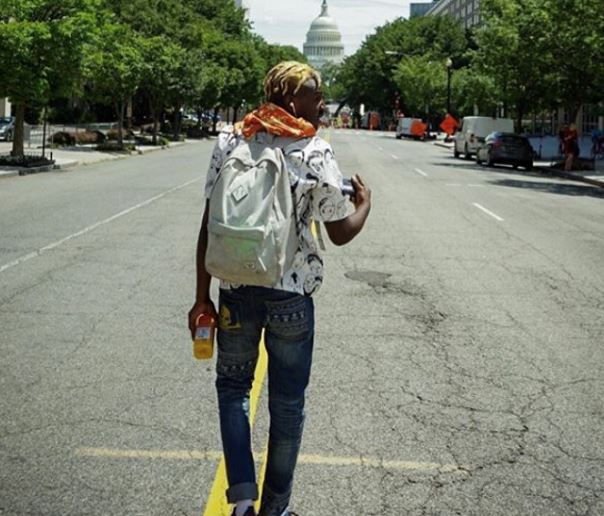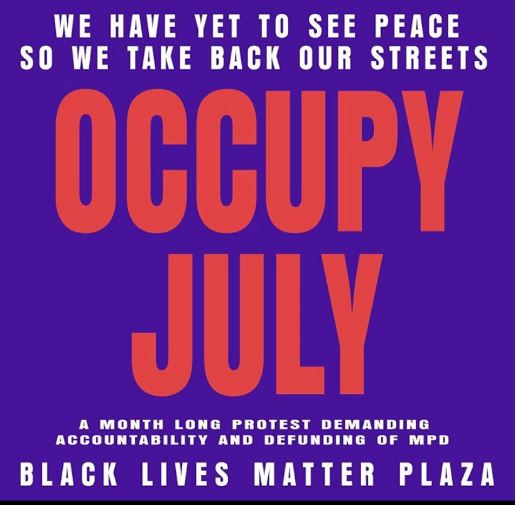[ad_1]
Interviewed By Micha Green
AFRO D.C. Editor
mgreen@afro.com
Mahadi Lawal is a socialist and activist with a background in international relations, who has been instrumental in organizing the Occupy H Street and Take Back Our Freedom movements in downtown, D.C.
AFRO: Have you always been into activism, particularly surrounding speaking out against racism and police reform?
ML: I have absolutely always been “into” activism. I have an international relations background so I am always aware of injustices going on worldwide. I began protesting in 2016 after the election, mostly because I was overcome with a feeling I cannot describe. It was a combination of hopelessness, anger and despair. I felt that the American people had been wronged and I wanted my voice to be heard.

AFRO: In your opinion, with so much continuous racism over centuries, what about the death of George Floyd served as a catalyst for revolution?
ML: I can only speak for myself, but I feel like my feelings are shared by many. I saw the video of George Floyds murder in its entirety by accident. Someone posted the video on my twitter feed and I decided to hit play. That decision changed my entire life. There is no way any human being could watch that video and not feel something. I was angry, frustrated, and confused. I couldn’t understand why he [Derek Chauvin] didn’t just get off his neck!
This combined with the general disillusion that most of society feels due to the current pandemic has created a beautiful moment. It is obvious that the system is not working, regardless of who is in power. The Rodney King incident happened in 1991. I wasn’t even born at that point, but I can list endless names in the past couple years that were not lucky enough to survive. It is pathetic that we have been fighting for the same thing for so long. Through different generations, presidents, even a Black president. The system was not designed for us, if we want to see change, we will have to work outside of the system.
AFRO: I see tons of White folks protesting. Why are people just now woke?
ML: I don’t think people are “just now woke,” I think it has come to a point were you need to take a stand. White people finally understand that silence means compliance so they are speaking out, either because they are allies or because it is the trend. We will have to develop a system to confirm whether they are actually committed or not but the time is now.

AFRO: There have been small and big changes since the most recent protests began, but do you think this will be a push for true change?
ML: There have not been any big changes, the biggest change might be Minneapolis dissolving their police department but from my perspective, as someone who’s been protesting every single day since May 28, there has been no change. D.C. Council passed a bill banning the use of pepper spray against people, but the mayor has not signed it and she probably will not. That is why on June 22 and 23, [the Metropolitan Police Department] used extreme force and pepper spray on peaceful protesters and there was no comment or acknowledgement from the Mayor.
AFRO: Would you consider George Floyd a martyr and do movements need martyrs?
ML: George Floyd was an unnecessary martyr, but his death has sparked a beautiful movement. He will be remembered forever and his name will be spoken long after our deaths.
Movements do not need martyrs at all. No one should be apart of a movement for the sole purpose of being a martyr. I myself was an unwilling martyr, I was arrested on June 24 on Black Lives Matter plaza for recording another arrest. My arrest brought people together to fight for my release and it was beautiful. I don’t want to be a martyr, the concept of martyrdom is great because of course you should be willing to die for what you believe in, but at the same time, you need to be willing to live through it and fight for as long as you live. Shout out to Angela Davis and Assata Shakur.
[ad_2]
Source link

